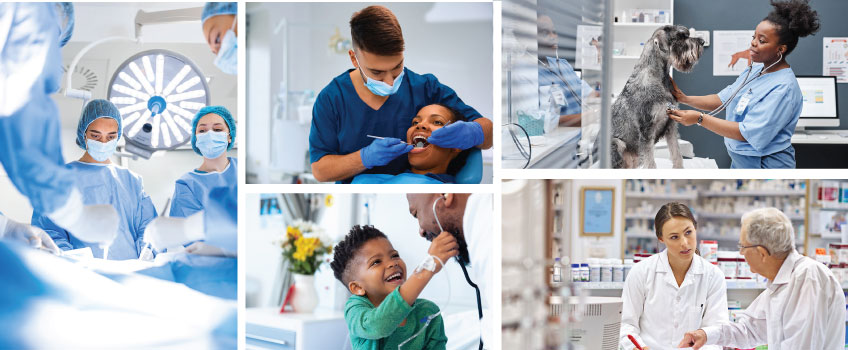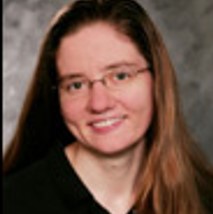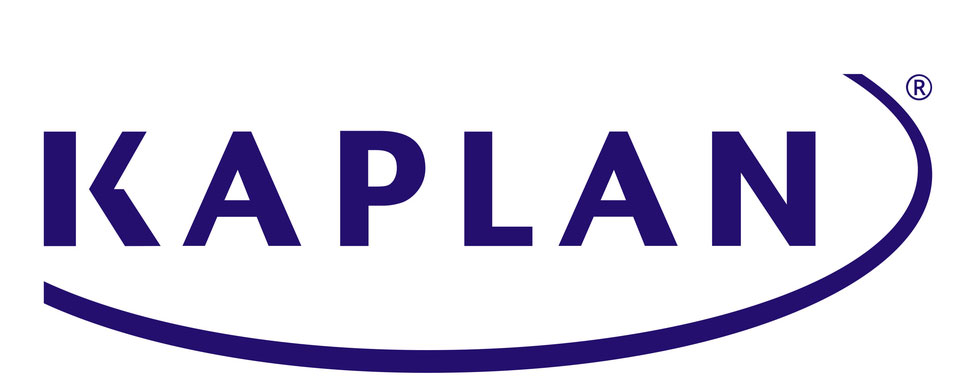Pre-Health Professions Advising & Dual Degree Health Profession

Stockton University’s Pre-Health/Pre-Medical Professions Advising & Dual Degree Programs provide a clear, structured pathway for students aspiring to enter medical, dental, veterinary, pharmacy, physical therapy, physician assistant programs, and more.
Our undergraduate degree programs are designed to help you build a competitive application for top graduate and professional schools, with personalized advising and hands-on learning. Dual-degree opportunities are available for incoming first-year students.
Why Choose Stockton for Your Pre-Health Education?
Flexible Academic Pathways
Comprehensive Pre-Health Advising
Dual-Degree Opportunities
Partnerships with Leading Health Institutions
Hands-On Experience & Research
Program Features & Benefits
Rigorous Academic Preparation
Stockton provides a strong foundation in biology, chemistry, physics, and mathematics, the key subjects required for medical and health professions schools.
Pre-Health Student Support
Benefit from advising workshops, mock interviews, and application guidance to help you stand out in the admissions process.
Competitive Edge for Graduate School
Stockton graduates have a high success rate in gaining acceptance to professional programs in medicine, dentistry, veterinary science, and allied health fields.
Diverse Career Paths
Our program prepares students for various healthcare careers, including:
- Medical Doctor (MD/DO)
- Dentist (DMD/DDS)
- Veterinarian (DVM)
- Pharmacist (PharmD)
- Physical Therapist (DPT)
- Physician Assistant (PA)
Whether you’re just starting your pre-med, pre-dental, pre-vet, or pre-pharmacy journey, Stockton University will help you navigate the path to success in healthcare.
Explore our programs and take the first step toward your future in medicine today!
Have an interview with a professional school and want to practice? Contact the program coordinator to schedule a mock interview.
Program Coordinator:

Dr. Elizabeth Pollock
Health Profession Schools Admission Requirements
Admission to health profession schools is highly competitive, and each program has unique prerequisites. However, all programs value strong academic performance, hands-on clinical experience, and leadership skills.
General Requirements
- Strong Academic Performance – A competitive GPA in science and math courses is essential for admission to most health professions schools.
- Prerequisite Coursework – Students should complete core science classes in biology, chemistry, physics, and mathematics, along with general education and writing-intensive courses.
- Clinical & Volunteer Experience – Schools highly value hands-on experience in healthcare settings, whether through shadowing, internships, paid positions, or volunteer work.
- Research & Leadership Skills – Demonstrating involvement in scientific research, leadership roles, or extracurricular activities can strengthen your application.
- Letters of Recommendation – Most programs require strong letters from faculty members or healthcare professionals who can attest to your academic ability, work ethic, and character.
- Standardized Test Scores (If Required) – Depending on your field, you may need to take exams such as the MCAT (Medical), DAT (Dental), GRE (Physical Therapy, Veterinary), or PCAT (Pharmacy).
- Holistic Review Factors – Many programs evaluate communication skills, teamwork, reliability, and cultural competency as part of their selection process.
Requirements vary by program and school. Work closely with your pre-health advisor to ensure you meet the specific criteria for your chosen profession.
Dual Degree Agreements
The dual degree programs require an additional application. Students interested in the Accelerated 7-year BS/DO or Dual-Degree Pharmacy programs can find the supplemental application in Stockton's applicant portal. Please note application deadlines as listed below.
Rowan School of Osteopathic Medicine (SOM)
High school seniors application process (or Stockton University students with less 32 credits or less)
Application to the dual degree program must be submitted by November 30.
- SAT scores should be at least 1310 combined - 670 each in Evidence-Based Reading and Writing section and at least 640 in the Mathematics section—from one testing (scores from different tests cannot be combined) or ACT equivalent Math score of 27 or greater, and English + Reading score of 58 or greater.
- Interviews at Stockton University and Rowan School of Osteopathic Medicine.
If accepted to the dual degree program,
- Must maintain a minimum 3.5 GPA at Stockton University with a grade of B or better in all prerequisite courses. A grade of B- is not acceptable. This is for all three years at Stockton University.
- MCAT required prior to entering Rowan School of Osteopathic Medicine.
- MCAT score at or about the 70th percentile level will most likely be expected to transition to the Rowan School of Osteopathic Medicine.
- BS in Biology from Stockton University awarded after successful completion of the first year at Rowan School of Osteopathic Medicine.
Rutgers School of Dental Medicine (RSDM)
Application to the dual degree program must be submitted by April 15. Interviews will not be granted until a final transcript is submitted showing grades for that spring semester and successful completion of all academic requirements.
- Interviews at Stockton University and RSDM
- BS in Biology from Stockton University awarded after successful completion of the first year at Rowan School of Osteopathic Medicine.
Dual degree BS/DMD requirements
- Students must be matriculated students who are in their fourth semester or have earned a minimum of 64-degree credits. (Note: applicants with an Associate’s Degree, regardless of whether it was earned as a dual degree in high school or as a traditional degree after high school, are ineligible to apply for the program.)
- At a minimum, transfer students must be enrolled for one year at Stockton, earning 32 credits.
- They must have earned and maintain a minimum cumulative and science GPA of 3.5 at Stockton.
- They must have completed at least two semesters of General Biology with lab, two semesters of General Chemistry with lab, two semesters of Organic Chemistry, Calculus I and II (or Calculus I + Statistics, and one semester of English (for those with AP credit in Bio, Chem, or English, please see AP Credit Policy below).
- They must complete two semesters of General Physics and labs (for those with AP credit in Physics, please see AP Credit Policy below),
- Applicants cannot have withdrawals or incomplete grades in any RSDM prerequisites.
- Prior to matriculation at the dental school (in your third, undergraduate year), BS/DMD students must complete biochemistry and fulfill all Stockton General Education requirements.
- Minimum DAT scores must be achieved, but are not necessarily sufficient to guarantee admission: Academic Average, 20, and individual science scores as follows: Organic Chemistry 20, Biology 20, and General Chemistry 20.
- DATs must be taken and submitted to the RSDM Office of Admissions by January 1 of the entering year.
- If conditionally admitted, students are required to take and submit to the RSDM Office of Admissions their Dental Admission Test (DAT) scores by January 1 of their third year at Stockton; Only ONE DAT attempt is allowed. BS/DMD students must achieve at least a 20 as their Academic Average, 20 Total Science (SNS), 20 Organic Chemistry, 20 General Chemistry, and 20 Biology, but the scores are not necessarily sufficient to guarantee admission.
AP credit policy:
Rutgers Dental requires that students with AP credits still take the same number of courses in a topic area in college. For example, students with AP credit for English Language may use that credit towards their degree, but must take an additional W1 course prior to applying to the dual-degree program. Students with AP credit for Cells and Molecules and Biodiversity and Evolution must take two additional biology courses. Courses such as Cell Biology, Systems Biology, or Microbiology are particularly recommended as these provide strong preparation for dental school. AP credits can be used to fulfill the general chemistry requirements. Students with AP physics credits must select appropriate courses in consultation with the dual-degree advisor. Applicants are not permitted to “double dip” these requirements. For example, students with credit for chemistry and biology may not use Biochemistry as one of the upper-level biology electives.
Rutgers University Ernest Mario School of Pharmacy (EMSP)
Only open to high school seniors
Application to the dual degree program must be submitted by November 30.
- Minimum 1310 SAT (verbal and math) from one testing (scores cannot be combined).
- Mathematics sub-score should be at least ≥650
- Top 10% of graduating high school class
- Must have completed 4-years of Engligh/3-years of Science/3-years of Mathematics prior to being enrolled at Stockton University
- Interviews at Stockton University and EMSP
- Must maintain a minimum 3.0 GPA at Stockton University with a grade of B or better in all prerequisite courses. A grade of B- is not acceptable
- BS in Biochemistry from Stockton University awarded after successful completion of the first year at EMSP
Curriculum
Students are expected to have a solid foundation in biology, chemistry, physics, and mathematics regardless of their choice of major, but there is more to the health professions than just science. The undergraduate years at Stockton provide an opportunity for the in-depth pursuit of non-science subjects of interest and for developing a well-rounded liberal arts and sciences background. This is valued by many professional programs, particularly medical schools.
We have developed formal articulation agreements with a number of medical and other health professions schools. These agreements are designed to provide early admission decisions to outstanding students and, in some cases, to allow completion of a baccalaureate and professional degree in six or seven years.
Coursework for Specific Medical Careers (Non-Dual Degree)
See the Anatomy of an Applicant brochure from the American Association of Medical Colleges for helpful information.
- Required courses generally include: CHEM I-IV, C&M, B&E, Physics I-II (does not need to be calculus-based), a year of college math (most commonly fulfilled with Calc I and statistics, pre-calculus usually does not count towards this requirement).
- Recommended courses, which are required by some schools, include: biochemistry, psychology, and sociology. Some GSS courses could meet the sociology recommendation.
- Competitive applicants have a minimum GPA in both STEM courses and overall of 3.6+
- Competitive applicants have MCAT scores of 509+
- Some schools require a situational judgement test, such as Casper or PREview
See the Preparing to Apply webpage from the American Dental Education Association for helpful information.
- Required courses generally include: CHEM I-IV, C&M, B&E, Physics I-II (does not need to be calculus-based), a year of college math (most commonly fulfilled with Calc I and statistics, pre-calculus usually does not count towards this requirement).
- Recommended courses, which are required by some schools, include: biochemistry, two W1 courses. Anatomy, Physiology (these are better met with the BIOL courses 2150 2180 rather than a combined A&P course).
- Competitive applicants have a minimum GPA in both STEM courses and overall of 3.6+
- Competitive applicants have DAT scores of 20+
Stockton students can apply to our DPT program as part of a 3-3 program, using courses in the first year of the DPT program to count towards their undergraduate degree. Students interested in this pathway are strongly encouraged to work with their preceptor starting in their first year so as to ensure that all necessary coursework is completed in time to apply during the fall of junior year.
See the Becoming a Physical Therapist webpage from the American Physical Therapy Association for helpful information.
- Required courses generally include: two semesters of chemistry, C&M, B&E, Anatomy, Physiology, Physics I-II (does not need to be calculus-based), psychology, statistics
- GRE general test is typically required
- PT hours are either required or highly recommended
See the Becoming a PA webpage from the American Academy of Physician’s Associates for helpful information.
- Required courses generally include: CHEM I-IV, C&M, B&E, Anatomy, Physiology, statistics, W1 courses, medical terminology, psychology
- Recommended courses, which are required by some schools, include: biochemistry, genetics, and microbiology
- Most schools require extensive patient contact hours, with competitive applicants having two or more years of healthcare experience
- Competitive applicants have a minimum GPA in both STEM courses and overall of 3.5+; 3.25 is a typical minimum GPA.
- Tests such as the GRE are not generally required
See the Admissions Requirements webpage from the American Association of Colleges of Pharmacy for helpful information
- Required courses generally include: CHEM I-IV, C&M, B&E, Physics I-II (does not need to be calculus-based), a year of college math (most commonly fulfilled with Calc I and statistics, pre-calculus usually does not count towards this requirement).
- Recommended courses, which are required by some schools, include: biochemistry, genetics, microbiology, and economics.
- Some schools require the PCAT or GRE exams.
See the Veterinary school admission 101 webpage from the American Veterinary Medical Association for helpful information.
- Required courses generally include: CHEM I-IV, C&M, B&E, Biochemistry, Physics I-II (does not need to be calculus-based), a year of college math (most commonly fulfilled with Calc I and statistics, pre-calculus usually does not count towards this requirement).
- Recommended courses, which are required by some schools, include: Anatomy, Physiology (these are better met with the BIOL courses 2150 and 2180/3150 rather than a combined A&P course), microbiology.
- Experience with animal care is usually required
- Most schools require the GRE, and many will allow the MCAT instead
- Competitive applicants have a minimum GPA in both STEM courses and overall of 3.5+; 3.25 is a typical minimum GPA.
Visit the Podiatric Education and Training webpage from the American Podiatric Association for helpful information. A career in podiatry limits you to focusing on the lower limb but does not limit you to general practice. Podiatrists can specialize in areas such as surgery, sports medicine and wound care.
Required courses are the same as for medical schools, but you do not need as high
a GPA to be competitive.
The MCAT is typically required, with an average score of 494.
Optometrists are the general practice professionals in the world of eye care. If you want to be able to do surgery or higher-level care, you need to be an ophthalmologist. Ophthalmologists are MDs. To learn more about optometry, visit the Future Eye Docs web page from the Association of Schools and Colleges of Optometry.
Required courses are the same as for medical schools, but you do not need as high a GPA to be competitive, with the average GPA of accepted students a 3.5.
Their admissions test is the OAT, though many schools accept MCAT or DAT scores.
Dual Degree Curriculum with Partner Schools
Dual-degree Bachelor of Science in Biology & Doctor of Osteopathic Medicine (DO) at Rowan University School of Osteopathic Medicine
Dual-degree Bachelor of Science in Biology at Stockton & Doctor of Dental Medicine (DMD) at Rutgers University School of Dental Medicine
Dual-degree Bachelor of Science in Biochemistry & Doctor of Pharmacy at Rutgers University Ernest Mario School of Pharmacy
Degree Works Curriculum & Transfer Equivalency Tool — Biology Pre-Professional Track, Plus More!
See the curriculum for your area of interest using Degree Works. This service is accessible even if you are not currently a student with Stockton University.
Frequently Asked Questions
These “pre” designations are nothing more than internal auditing to ensure that all of the pre requisite courses required for application to a professional school are taken. Majors are usually Biology or Chemistry, although any other major is possible. For the dual degree programs, a BS in Biology or Biochemistry/Molecular Biology is necessary.
Some courses taken in the first year (or two) of professional school transfer back to Stockton and count as credit for the BS degree. Other than these transfer science courses, all other degree requirements must be met within the two or three years spent at Stockton. This obviously requires some very good planning along with full course loads every semester.
For the Rutgers Pharmacy School and Rowan School of Osteopathic Medicine articulations you apply in the fall of your senior year in high school. Some of the programs also allow applications at the end of the freshman or sophomore years. The Rutgers School of Dental Medicine application is at the end of the sophomore year at Stockton.
A 3.0 to a 3.5, depending on the program. All required science courses must be a “C” or better in some articulation programs, while a “B” or better is required by others.
For the pharmacy dual degree, a minimum 1310 SAT (verbal and math)from one testing.
If you enter an accelerated program after your sophomore year at Stockton, the SAT is not required (because we now have your college performance).
We do not keep this type of statistic because it depends on who is included in the applicant pool. Anyone can call themselves a pre-med or other “pre” something, but only those with great GPAs and admissions test scores get accepted. Our Health Professions Committee only interviews competitive students (high GPA and MCAT, DAT, GRE, etc. scores). Of those we interview, probably 80-90 % are accepted. It’s your overall application package and performance that gets you into a professional school, not your college.
A Heart for Healing
Learn more about Dr. Brascom's journey into medicine in the current issue of the NAMS e-zine The Essential Elements.




